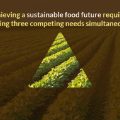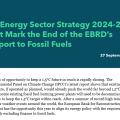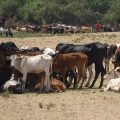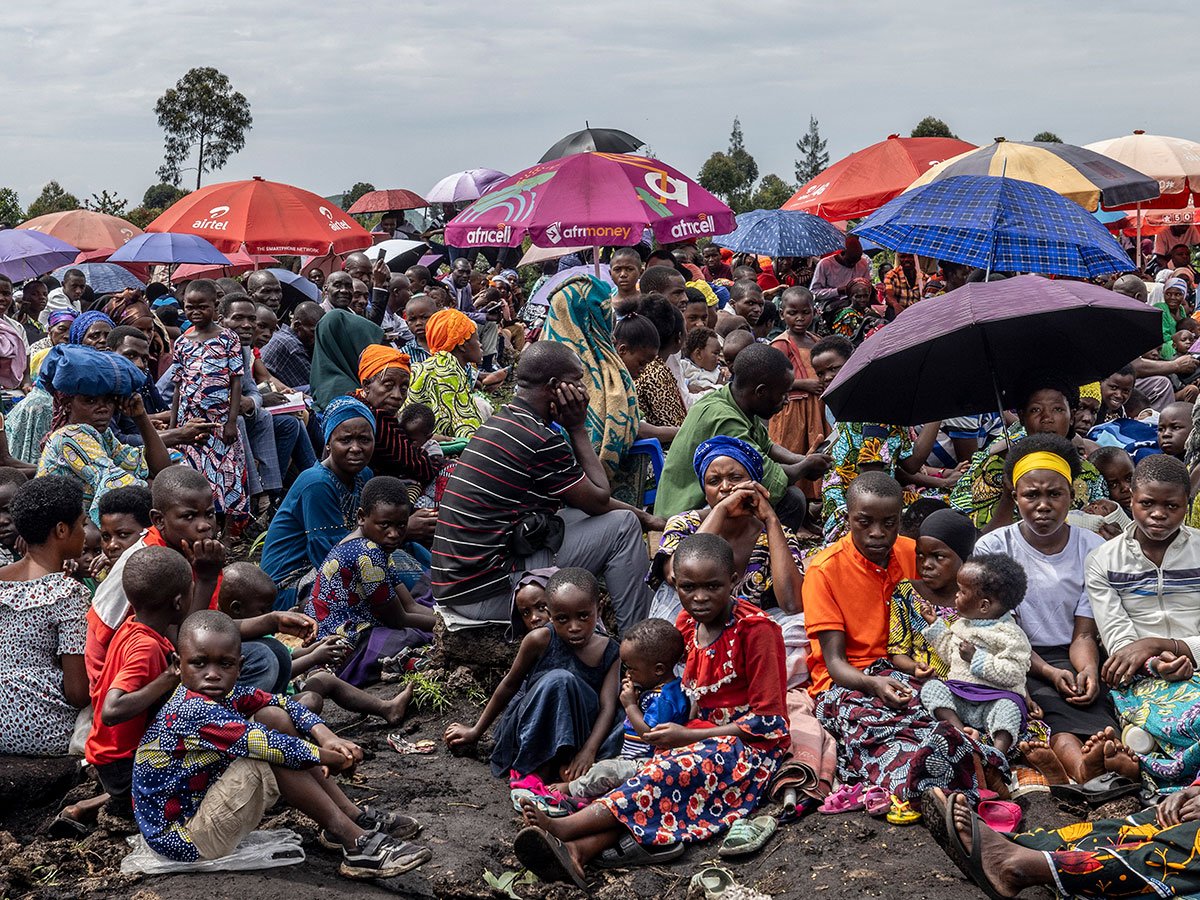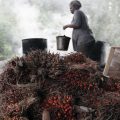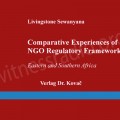Joint Statement
December 9, 2024
We, the undersigned civil society organizations (CSOs) and representatives of herders from Mongolia, strongly condemn the International Finance Corporation (IFC) and European Bank for Reconstruction and Development (EBRD) in providing a $100 million loan each, to Oyu Tolgoi (OT). This decision blatantly disregards years of unresolved grievances, environmental harm, and the failure of OT to comply with IFC and EBRD’s safeguard standards, as well as widespread rejection from local herders, CSOs, and even the Mongolian government.
Unresolved Harms and Non-Compliance
OT has failed to address critical issues, including its commitments under the 2017 Herders Complaint Resolution Agreements and IFC and EBRD’s social and environmental safeguards. Longstanding issues include:
- Failures in completing Resolution Agreements: Herders continue to struggle to sustain their livelihoods and protect the environment, as the agreements resulting from CAO complaints remain incomplete. The Tripartite Council (TPC), tasked with implementing the 2017 Agreements, has failed to ensure meaningful involvement of herders in safeguarding their rights and livelihoods.
- Tailings Storage Facility (TSF) Seepage: Despite implementing a Remedial Action Plan (RAP) as required by lenders to address the seepage from tailings cell 1 (TC1), OT has neither adequately mitigated the seepage nor transparently disclosed its full extent. Recent data reveals worsening water quality, with Total Dissolved Solids (TDS) levels rising dramatically downstream.
- Pasture and Water Scarcity: The mine’s expansion plans threaten vital grazing lands and water resources. Springs that once supported herders’ livelihoods have dried up, forcing herders to compete for limited resources. Moreover, the Dugat-Khaliv river, a key water source for herders, has been diverted around TC2 in a diversion channel without capacity to convey flood-level flows during rainy periods, leading to significant water loss for downstream herders.
- Environmental Failures: OT consistently fails to meet the design goal of 64% tailings solid content, resulting in inevitable seepage from the additional pressure exerted by excess water in the tailings cell. This and other design inefficiencies directly lead to massive water wastage estimated at up to $1.46 million per year.
- Inadequate Community Engagement: Herders were not meaningfully consulted about the RAP or OT’s expansion plans, violating IFC and EBRD principles of transparency and participation.
Water Mismanagement and Wastage
OT’s operations exacerbate water scarcity through inefficient tailings management. Water wasted due to tailings solids being below design criteria results in significant financial and environmental costs:
- From 2013-2017, OT achieved 56% solids (8% below design standard), wasting $1.46 million worth of water annually. From 2018-2024, OT achieved nearly 60% solids (4% below design standard) on average, meaning OT wastes $730,000 annually on replacement water. OT has approximately wasted $12.41 million since 2017 from losing 248.2 million liters of water.
- Oyu Tolgoi (OT) must attain the highest percentage of solid content as specified by its design criteria, 64%, to effectively prevent water scarcity in the South Gobi Desert and ensure improved water access for herders. While lenders argue that the 60-64% range meets the standard, 2012 ESIA states that “Final concentrate will be thickened to 65% solids” which proves otherwise. The TSF operating consistently below 60% results in excessive water waste, posing severe risks to the fragile desert ecosystem and the livelihoods of herders who rely on limited freshwater resources. Achieving the 64% target is not merely an option but a critical necessity to minimize environmental harm, optimize resource use, and uphold OT’s responsibility to local communities.
- This inefficiency compounds the structural weakness of tailings dams, necessitating costly redesigns and increasing the risk of catastrophic failure. Concerns Over Project Categorization and Political Risks We are deeply concerned that IFC and EBRD categorized OT’s expansion as a Category B project, despite its significant and irreversible impacts on herders and the environment. This misclassification downplays the scale of the risks, undermining proper oversight. Additionally, the Mongolian government is in a disagreement on additional financing that will add more debt, and the Mongolian Parliament Resolution #103 requires an independent audit of underground mine cost overrun which has not been disclosed. Approving new financing in such a contentious political and social environment poses significant risks to the project’s viability.
Recommendations and Conditionalities
IFC and EBRD must impose strict conditionalities on OT before any disbursements begin and ensure the conditionalities are placed in the lending agreement, including:
- Fulfillment of Past Commitments:
- Include the 2017 Herders Complaint Resolution Agreements (HCRAs) in lenders’ compliance requirements and fully implement them.
- Amend the RAP to include routine medical assessments for herders and their animals impacted by the contaminated water from the TSF seepage, and update Stakeholder Engagement Plan to involve the wider herder community impacted by the seepage.
- Disclose all the important data from the attachments and annexes of the RAP.
- Water and Tailings Management Improvements:
- Achieve the 64% as the highest solid content target for tailings as per the original ESIA.
- Disclose the full extent of TSF seepage impacts, including chemical contamination and health risks.
- Protection of Herders’ Livelihoods:
- Permanently halt land acquisitions that displace herders and prioritize using existing lease areas for future tailings cells.
- Construct a permanent Dugat-Khaliv diversion channel based on maximum flood probabilities.
- Transparency and Meaningful Engagement:
- Disclose all environmental and social impact assessments (ESIA) for expansion plans, implementation of the ESAP from the initial OT project loan, and OT Green Investment Plan.
- Take actions to strengthen TPC functions through assessing TPC Charter and the implementation of the HCRAs
- Ensure meaningful consultation with affected communities on all project aspects. This includes consultations on the expansion plans, environmental and social assessment related documents and strengthening of the Tripartite Council with valid herder representation as the body responsible to address herders’ concerns around the OT project.
The approval of new financing to OT without addressing these critical issues perpetuates harm to herders and the environment while eroding public trust in IFC’s and EBRD’s commitment to sustainable development. We call on IFC and EBRD to uphold their safeguards and suspend agreement signing and financing until OT achieves full compliance and fulfills its obligations to herders and the environment.
(Link to full statement in English and Mongolian)
Contact Information:
Sukhgerel Dugersuren, Oyu Tolgoi Watch, 976-99185828, otwatch@gmail.com
Battsengel Lkhamdoorov, Gobi Soil, 976-88705595, tsengel_5595@yahoo.com
Julio Castor Achmadi, Accountability Counsel, julio@accountabilitycounsel.org
Nina Lesikhina, Bankwatch Network, ninalesikhina@bankwatch.org
Signatories:
Gobi Soil, Mongolia
Oyu Tolgoi Watch, Mongolia
Center for Human Rights and Development, Mongolia
AFE, Mongolia
APPDO, Mongolia
CA NGO, Mongolia
GFS, Mongolia
MFSW, Mongolia
RwB Mongolia
SR NGO, Mongolia
SWA, Mongolia
SWB NGO, Mongolia
Accountability Counsel
CEE Bankwatch Network, Regional
Bank Climate Advocates, USA
Bank Information Center, USA
Both ENDS, the Netherlands
Center for Community Mobilization and Support, Armenia
Centre for Research and Advocacy, Manipur, India
Earth Thrive, UK/Serbia
Friends with Environment in Development (FED), Uganda
GAIA, Regional
Gender Action, USA
Green Advocates
Initiative for Right View (IRV), Bangladesh
International Accountability Project
INWOLAG
Kazakhstan International bureau for human rights, Kazakhstan
London Mining Network
LSD, Senegal
NGO Forum on ADB, Regional
Peace Point Development Foundation-PDF, Nigeria
Recourse
Samata & mm&P, India
Sinergia Animal, Brazil
Urgewald, Germany
Witness Radio, Uganda.
Source: Accountability Counsel.
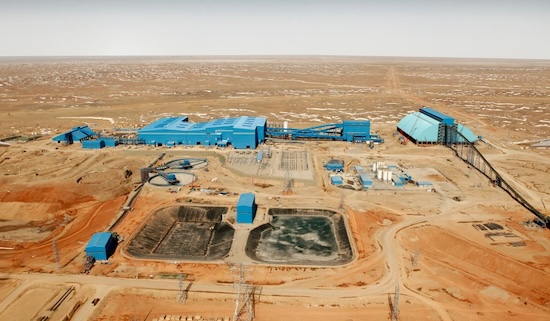

 SPECIAL REPORTS AND PROJECTS2 weeks ago
SPECIAL REPORTS AND PROJECTS2 weeks ago
 MEDIA FOR CHANGE NETWORK5 days ago
MEDIA FOR CHANGE NETWORK5 days ago
 MEDIA FOR CHANGE NETWORK2 weeks ago
MEDIA FOR CHANGE NETWORK2 weeks ago
 SPECIAL REPORTS AND PROJECTS2 weeks ago
SPECIAL REPORTS AND PROJECTS2 weeks ago
 MEDIA FOR CHANGE NETWORK2 weeks ago
MEDIA FOR CHANGE NETWORK2 weeks ago
 MEDIA FOR CHANGE NETWORK1 week ago
MEDIA FOR CHANGE NETWORK1 week ago
 MEDIA FOR CHANGE NETWORK5 days ago
MEDIA FOR CHANGE NETWORK5 days ago
 NGO WORK6 days ago
NGO WORK6 days ago
